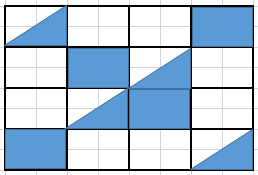Given a 4x4 grid of squares, can you black out exactly six of them so that the number of blacked out squares in each row, as well as in each column, is even.
All solutions are permutations of a single one (i.e. all solutions are obtained from any given one by simply flipping around rows and columns).

